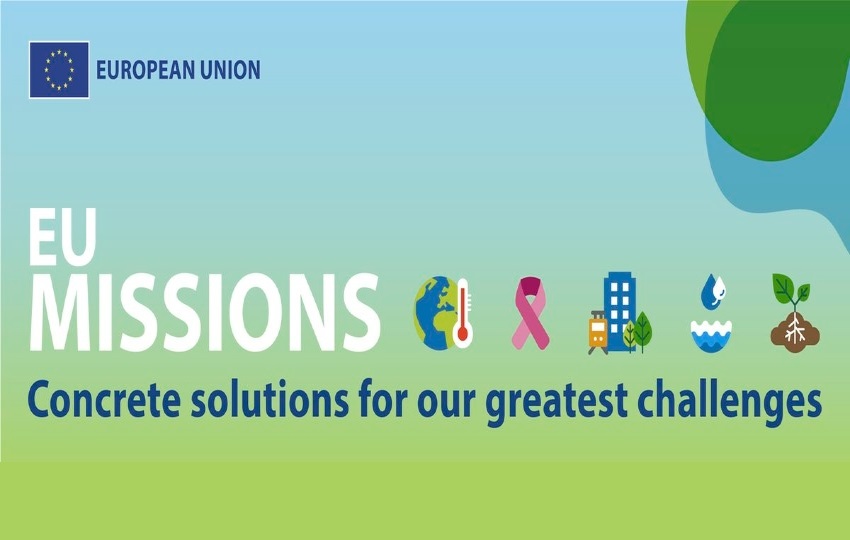Tackling some of the greatest challenges for society and the planet
In 2021, the EU launched an ambitious initiative to tackle some of the most pressing challenges facing our society and the planet. The EU Missions are a set of bold, inspirational, and measurable goals that aim to deliver concrete solutions for the benefit of European citizens and beyond. The five selected Mission areas are Adaptation to Climate Change, Cancer, Healthy Oceans, Seas, Coastal and Inland Waters, Climate-Neutral and Smart Cities, and Soil Health and Food. The Missions are a new way of working for the EU, involving citizens, stakeholders, researchers, innovators, policymakers, and other actors in co-designing and co-implementing solutions for complex and systemic problems. The Missions also contribute to the EU’s strategic priorities, such as the European Green Deal, the Digital Agenda, and the Horizon Europe programme.
To ensure the success and relevance of the EU Missions, a comprehensive assessment was needed to evaluate their selection process, governance, budget, instruments, and progress to date. The team of EFIS Centre, Utrecht University, KMU Forschung Austria and Visionary Analytics aimed to provide evidence and to assess the relevance of the EU Mission areas based on the collected evidence, to review the appropriateness and relevance of the Mission areas and to analyse the EU Missions’ portfolio of instruments and actions.
Collecting evidence from various stakeholders
The main contribution of Visionary Analytics to the study was the implementation of a broad stakeholder survey. The survey was a key tool to collect the views of various stakeholders of EU Missions and analyse data from different. In total, there were 342 responses to the survey by stakeholders from across all five missions. The stakeholder survey helped to identify what worked well and less well, lessons to be learned and suggestions for improvement for the short and longer-term EU Missions’ implementation. By involving stakeholders in the assessment process, we ensured that the study was informed by diverse and relevant opinions from various sectors.
A comprehensive mixed-methods approach
Besides the survey, the study involved a combination of different sources of data to ensure that the conclusions were triangulated. This included a comprehensive literature review, interviews with experts, and online workshops with stakeholders. The study analysed and integrated the information and feedback from various sources and provided a detailed review of each mission area with overall conclusions and recommendations.
The five mission assessment reports concluded that the scoping of mission areas and the design of the mission objectives and plans have been generally well handled in an open and transparent manner and based on the available scientific evidence. The consulted stakeholders appreciate the way the mission area has been developed into a set of objectives and actions to deliver on the agreed mission goals.
Interested in learning more?
Learn more about the study by reading the final report here.



